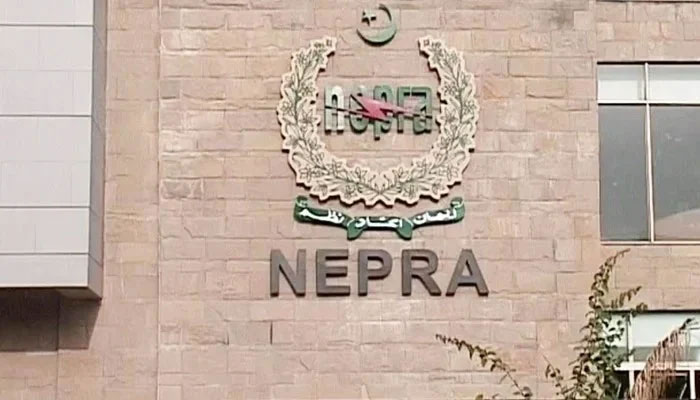Nepra mulls tariff cut for bagasse power plants, eyes Rs235bn savings
Any future rupee depreciation will see 70% of burden passed to consumers, with IPPs absorbing remaining 30%
ISLAMABAD: Pakistan’s power regulator Nepra on Wednesday held hearings on requests from nine bagasse-based independent power producers (IPPs) seeking a reduction in their electricity tariffs, a move that could save power consumers an estimated Rs235 billion over the lifetime of the projects.
The proposed revision would cut these IPPs tariffs by Rs3.07 per unit, bringing the rate down from Rs17.13 to Rs14.06 per unit because of cut in fuel cost component (FCC), working capital and return on equity (RoE).
Nepra Chairman Waseem Mukhtar chaired the hearing, which was attended by officials from the Central Power Purchasing Agency (CPPA), IPPs, and other stakeholders. The combined capacity of these nine IPPs is 240MWs.
The CPPA informed Nepra that the fuel cost component for these sugarcane-waste-powered plants has been decoupled from international coal and dollar rates and pegged at Rs4,500 per ton. The IPPs—Chiniot Power, JDW Sugar Mills (Units II & III), Almoiz Industries, RYK Mills, Shah Taj Sugar Mills, Thal Industries, Hamza Sugar Mills, and Chanar Energy — have voluntarily signed amended agreements with the government to reduce their tariff components.
The revised deals also slash the working capital component by 50 percent, while capping Return on Equity and RoEDC at Rs168 to a US dollar. Any future rupee depreciation will see 70 percent of the burden passed to consumers, with IPPs absorbing the remaining 30 percent. Gains from rupee appreciation, however, would go entirely to consumers.
Nepra also concluded hearings on tariff revisions for two other 2002-policy IPPs—Attock Gen and Foundation Power Company.
In a separate session, the regulator reviewed K-Electric’s request to slash February’s fuel charges by Rs6.62 per unit, which could offer Karachi consumers Rs6.6 billion in relief.
-
 Milo Ventimiglia Calls Fatherhood 'pretty Wild Experience' As He Expects Second Baby With Wife Jarah Mariano
Milo Ventimiglia Calls Fatherhood 'pretty Wild Experience' As He Expects Second Baby With Wife Jarah Mariano -
 Chinese Scientists Unveil Advanced AI Model To Support Deep-space Exploration
Chinese Scientists Unveil Advanced AI Model To Support Deep-space Exploration -
 Anthropic’s New AI Tool Wipes Billions Off Cybersecurity Stocks
Anthropic’s New AI Tool Wipes Billions Off Cybersecurity Stocks -
 Trump Announces He Is Sending A Hospital Ship To Greenland Amid Rising Diplomatic Tensions
Trump Announces He Is Sending A Hospital Ship To Greenland Amid Rising Diplomatic Tensions -
 'Never Have I Ever' Star Maitreyi Ramakrishnan Lifts The Lid On How She Avoids Drama At Coffee Shops Due To Her Name
'Never Have I Ever' Star Maitreyi Ramakrishnan Lifts The Lid On How She Avoids Drama At Coffee Shops Due To Her Name -
 Inside Prince William’s Plans For Prince Harry: What Will Happen To Duke Once He’s King
Inside Prince William’s Plans For Prince Harry: What Will Happen To Duke Once He’s King -
 Chyler Leigh Pays Moving Homage To 'Grey’s Anatomy' Co-star Eric Dane: 'He Was Amazing'
Chyler Leigh Pays Moving Homage To 'Grey’s Anatomy' Co-star Eric Dane: 'He Was Amazing' -
 Did You Know Tech CEOs Limit Screen Time For Their Own Kids?
Did You Know Tech CEOs Limit Screen Time For Their Own Kids? -
 Matthew Lillard Admits Fashion Trends Are Not His 'forte'
Matthew Lillard Admits Fashion Trends Are Not His 'forte' -
 SpaceX Launches Another Batch Of Satellites From Cape Canaveral During Late-night Mission On Saturday
SpaceX Launches Another Batch Of Satellites From Cape Canaveral During Late-night Mission On Saturday -
 Princess Beatrice, Eugenie Get Pulled Into Parents’ Epstein Row: ‘At Least Stop Clinging!’
Princess Beatrice, Eugenie Get Pulled Into Parents’ Epstein Row: ‘At Least Stop Clinging!’ -
 Inside Kim Kardashian's Brain Aneurysm Diagnosis
Inside Kim Kardashian's Brain Aneurysm Diagnosis -
 Farmers Turn Down Millions As AI Data Centres Target Rural Land
Farmers Turn Down Millions As AI Data Centres Target Rural Land -
 Trump Announces A Rise In Global Tariffs To 15% In Response To Court Ruling, As Trade Tensions Intensify
Trump Announces A Rise In Global Tariffs To 15% In Response To Court Ruling, As Trade Tensions Intensify -
 Chappell Roan Explains Fame's Effect On Mental Health: 'I Might Quit'
Chappell Roan Explains Fame's Effect On Mental Health: 'I Might Quit' -
 AI Processes Medical Data Faster Than Human Teams, Research Finds
AI Processes Medical Data Faster Than Human Teams, Research Finds




